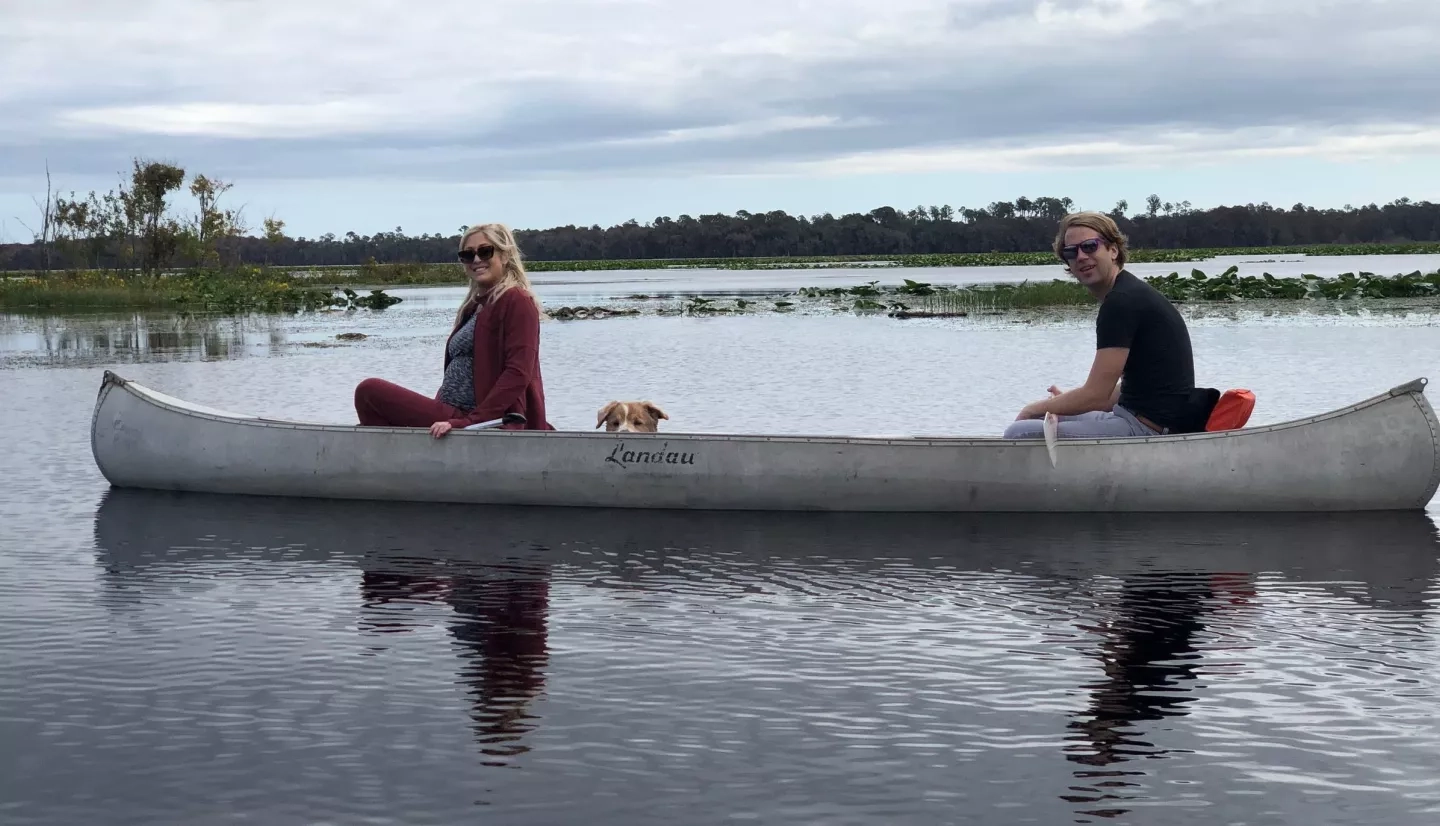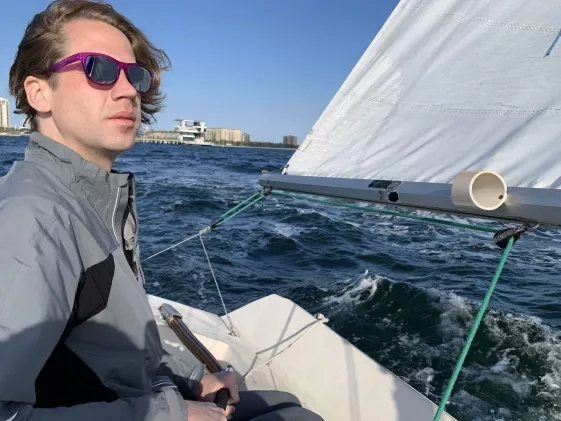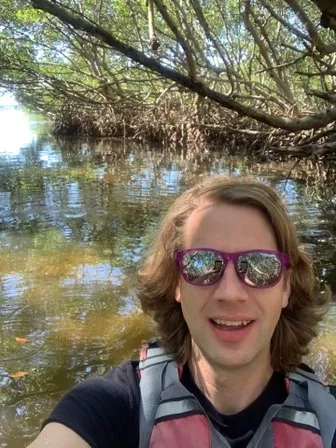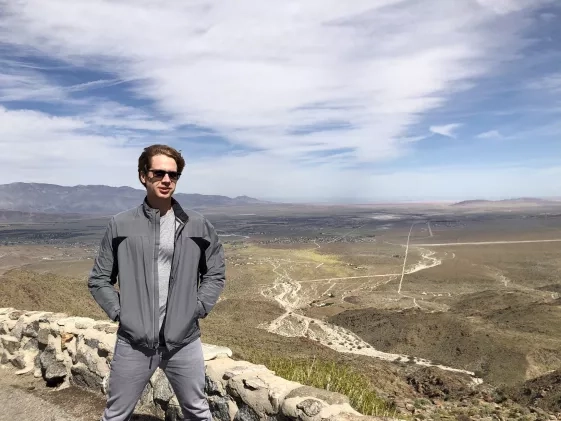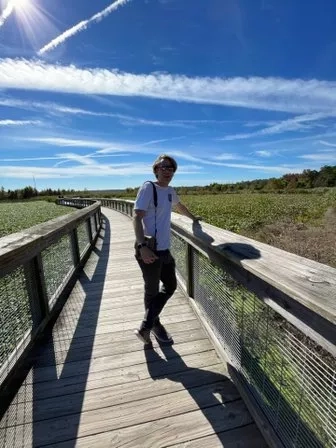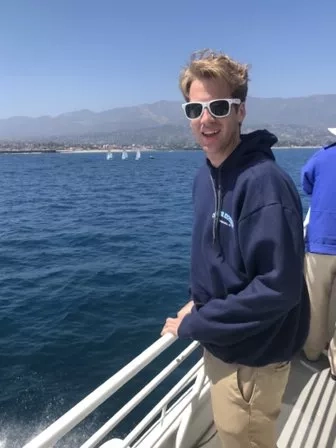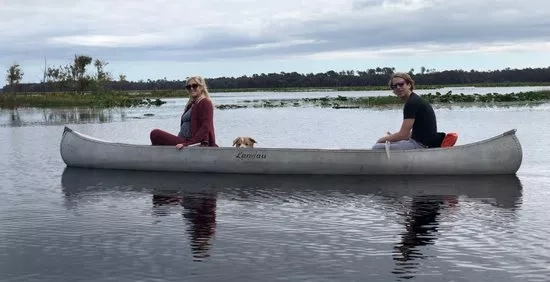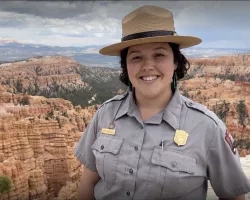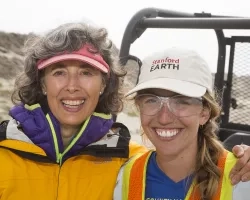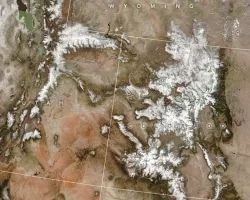Growing up in Gainesville, Florida, Marcus Beck developed an early appreciation for the wealth of aquatic resources that surrounded him in his home state. Some of his favorite childhood memories include canoeing with his parents and visiting natural springs in the summertime. Beck’s early exposure to the natural world ignited his passion for water resources and after graduating from the University of Florida, led him to pursue a Ph.D. at the University of Minnesota in Conversation Biology.
When Beck moved to Minnesota, he planned on studying fish and dreamt of one day becoming a fish biologist. Instead, he was assigned a data-intensive project that had him taking different ecological datasets for hundreds of lakes in Minnesota and distilling them down to assess the ecological status and conditions of these lakes. It was through this project that Beck discovered how much he enjoyed working with data, developing data analysis workflows and pipelines, and distilling data into information.
Today, Beck describes himself as a research ecologist first and as a data scientist second. In working as a program scientist at the Tampa Bay Estuary Program, he spends most of his day writing coding or developing software programs and open science tools that he uses to help resource managers make informed decisions about aquatic resources.
Here are five questions we put to Beck.
- HOW WOULD YOU DESCRIBE YOUR WORK WITH THE NASA WATER RESOURCES APPLIED SCIENCES PROJECT TO A 5TH-GRADE STUDENT?
I started working with the NASA Applied Sciences Water Resources team and the United States Geological Survey (USGS) shortly after joining the Tampa Bay Estuary Program in November of 2019. Together we are working to help take watershed models that were developed by NASA and USGS to understand how water is flowing on the landscape and then use these models to quantify pollution or the nutrients in that water. Specifically, we are interested in estimating how much water and what pollutants are coming from the watershed, the timing of when pollutants are flowing into sensitive ecosystems, and where they are coming. In analyzing this information, we can pinpoint areas on the landscape to focus our efforts and develop different strategies of controlling sources of pollution. I then work with our local partners to apply the models developed and make decision makers aware of the application by assisting with some of the programming and providing guidance on how to use the tools.
- WHAT TYPE OF BODY OF WATER BEST DESCRIBES YOUR PERSONALITY?
Estuaries describe me best. When talking about my work, I often explain estuaries as an area of transition; it’s a place where the river meets the ocean. Estuaries are interesting ecologically because they’re sort of this mixing pot where freshwater from rivers and streams mixes with saltwater from the ocean. How estuaries compare to my personality is demonstrated in how I bridge the communication gap between the research community and the management community within my career. For years I thought that as a scientist if I wrote a scientific paper and published it that people would take that information and make informed decisions based on what they’ve read. I later realized that this was not the case. Scientific papers are dense documents and hard to distill if you are not accustomed to reviewing literature. I’ve discovered that the data science tools that I’ve developed over the years can translate the science to the management community and people can use these different pieces of information to make better scientific decisions about the environment.
- IF YOU COULD VISIT ANY COUNTRY ON THE PLANET, WHERE WOULD YOU GO AND WHY?
I got bit by the travel bug when I was younger and went to Europe, Asia, and Africa, but that was a different stage of my life, and I haven’t traveled much since. If I had to pick just one place that I would like to visit next, I would choose somewhere in Scandinavia. In addition to being part Scandinavian, I think as a scientist it would be interesting to see the geological history of Scandinavia, specifically Finland.
When I was a postdoc working on glacial lakes in Minnesota, I collaborated with a researcher from Finland who also studied glacial lakes. Despite working on two different continents, I learned that the lakes in Minnesota and Finland are ecologically similar because they were created by similar geological processes. I would enjoy traveling to Finland to see the glacial lakes for myself, especially the fish and plant communities, and compare environmental perspectives and how their management challenges vary from ours in the United States.
- WHAT IS YOUR FAVORITE STORY OF A TIME YOU WORKED WITH SOMEONE WHO YOU HELPED USE EARTH SCIENCE DATA?
When I was in graduate school, I tried out teaching for a bit and found that it wasn’t for me. I stayed away from teaching for a long time but for whatever reason, I have recently started teaching again and have really enjoyed it. For the last few years, I have been teaching R training workshops on how to use an R software package for working with Tampa Bay data. I’ve developed a comfort teaching and get excited when people take what they learn from my teaching and completely ingrain it into their careers. This happens every once in a while, and when it does, it’s a really fulfilling feeling to know that you’ve actually changed someone’s life and have given them the tools to work more with Earth science data as a result.
- WHAT ADVICE WOULD YOU GIVE TO YOUR YOUNGER SELF?
They say hindsight is 20/20 but overall, I am happy with where I am at in my life and career. If I would do anything differently, I would tell myself to find something that you enjoy, that you’re good at, and that other people need. If you can find a balance between those three things, then you’re going to have a lot easier time finding a fulfilling career. In addition, as uncomfortable and challenging as it may seem, I think it is important to go outside your comfort zone as it will allow you to grow individually and find clarity in life. My career path has not always been linear but I’m a firm believer that if you work hard, put yourself out there, and always persevere, good things will happen.
